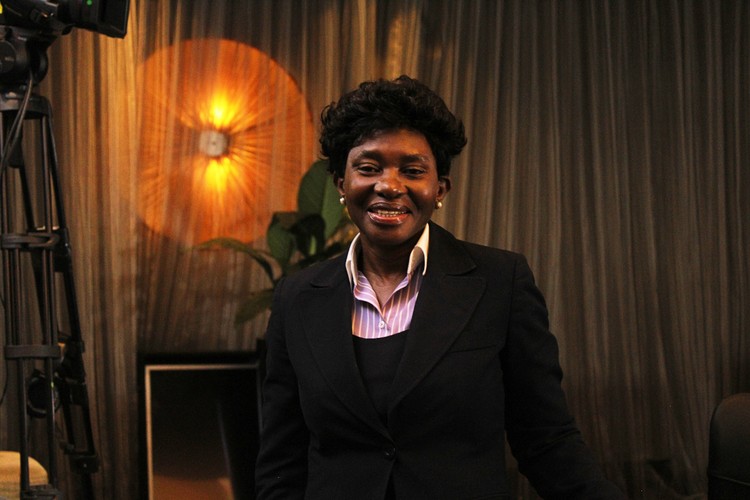
16 May 2023
Judge Tintswalo Annah Nana Makhubele faces the Judicial Conduct Tribunal taking place in Rosebank, Johannesburg. Photo: Masego Mafata
The attorney representing the Passenger Rail Agency of South Africa (PRASA) in relation to the Siyaya deal said he was not aware of concessions made by the rail agency’s employees which affected its defence against claims by the Siyaya group of companies.
Madimpe Mogashoa of Diale Mogashoa Attorneys revealed this on Tuesday, at the tribunal examining the conduct of Judge Tinstwalo Annah Nana Makhubele during her tenure as interim chairperson of the PRASA board. The tribunal is the result of a complaint lodged by commuter activist group #UniteBehind, against Makhubele, with the Judicial Service Commission (JSC) in 2019.
#UniteBehind accuses Makhubele of breaching the separation of powers principle, and of improper conduct while she was the chairperson of PRASA’s interim board of control. The activist group claims she negotiated and entered into a confidential settlement agreement with Siyaya, a company accused of corruption. In doing so, #UniteBehind claims, Makhubele sidelined PRASA’s internal legal team.
Giving his testimony at the Judicial Conduct Tribunal in Rosebank, Johannesburg, Mogashoa said he was appointed in 2015 by PRASA’s legal department to represent the agency in the Siyaya matters. These related to summonses served on PRASA by the Siyaya group of companies between 2015 and 2016 for outstanding payments.
The tribunal previously heard that PRASA’s legal team believed they could defend the summons because there were inconsistencies in the contracts and claims of services rendered by Siyaya group of companies.
Mogashoa told the tribunal that one of the companies, Siyaya DB Consulting Engineers, was undergoing a liquidation process at the time litigation was underway between PRASA and the Siyaya group of companies. He said PRASA’s legal department instructed his firm to keep a watching brief on the section 417/418 inquiry, which formed part of the proceedings, as some PRASA employees were called to testify.
“I submitted summaries to PRASA about what the requirements were from the commissioner of the inquiry as far as PRASA’s employees were concerned,” he said.
Evidence leader advocate Elaine Zungu questioned Mogashoa on his knowledge of any concessions made by the PRASA employees who had been called to appear before the inquiry. Mogashoa said: “I don’t recall there having been any concessions, or particularly concessions that would have had an impact on the matters that we were defending.”
Mogashoa said at a meeting on 4 December 2017 with Makhubele, who was PRASA’s interim board chair at the time, Makhubele expressed concern that the testimonies of some PRASA employees at the inquiry were such that PRASA had no defence against Siyaya’s claims.
He said Makhubele told him she came to know of the concessions from a report that she had seen. Mogashoa said he did not see the report or any report from the commissioner of the inquiry, despite numerous requests to view it and determine whether concessions were made.
“We asked that parts of the report that involved our witnesses be made available to us but I have not come across any transcripts or report that speaks on the summary of testimony of the PRASA employees at the section 417/418 proceedings,” he said.
Without this information, Mogashoa told the tribunal, he could not determine whether there were concessions and what the nature of those concessions was.
Mogashoa told the tribunal that it was on the basis of the concessions Makhubele had claimed were made that she instructed Diale Mogashoa Attorneys, through then-acting group CEO Lindikaya Zide, to settle rather than defend the Siyaya matters.
During cross-examination, Makhubele’s advocate Vincent Maleka questioned Mogashoa on whether he believed the settlement with Siyaya was a secret agreement, as outlined in the tribunal’s terms of reference.
Mogashoa said his firm was “never involved in any secrecy” regarding the settlement of the Siyaya matters. He said they merely acted on the instructions they received from PRASA.
The tribunal resumes on Wednesday at 10am.